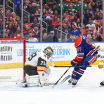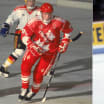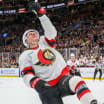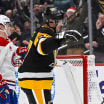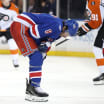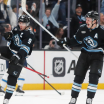The Coaches Room is a regular feature throughout the 2019-20 season by one of four former NHL coaches and assistants who will turn their critical gaze to the game and explain it through the lens of a teacher. David Marcoux, Rob Zettler, Rob Cookson and Randy Carlyle will take turns providing insight.
In this edition, Cookson, a former assistant with the Ottawa Senators and the Calgary Flames and video coach with the Philadelphia Flyers, talks about how coaches approach the three-day Christmas break from Dec. 24-26.
Christmas break can be gift for NHL teams
Players, coaches use time off to refresh selves mentally
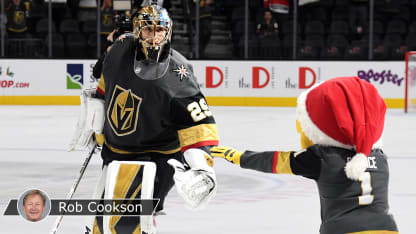
© Getty Images
By
Rob Cookson / Special to NHL.com
I've always thought that, unlike in other pro sports, getting at least three days off for the Christmas break each NHL season is very beneficial to the mental outlook of the players and the coaches.
If teams are stumbling going into the break, sometimes it's a blessing in the sense that you get an opportunity to spend some downtime with your family and get away from the game. Other teams, which are feeling wonderful and doing great, may not want a break. They may want to just keep rolling, but they know that the long season can take a toll and that a break is not that bad.
Teams usually play their final game before Christmas on Dec. 23. Every coach going into a short break like that will address the players, wish them a Merry Christmas, and tell them, "Have a great time with the family and look after yourself, and let's get right back at it. We've got a tough game coming up on Dec. 27 and we need to be ready for that team."
That's the general message. After that, the players and the coaches go their separate ways for the holiday.
That doesn't mean the coaches don't have some work to do during their time off. Staff members take an hour or two over the course of the three days to do a little preparation for the first game after the break. You just recognize that's part of your job.
Usually when players have days off, coaches are working or least having meetings, so it's just a routine type of activity for the coach to stay busy. It's like you're on a treadmill and get off for a period of time, you lose your way a little bit.
For the most part when I was with the Senators, I would fly to Calgary the night after the Dec. 23 game or early the next morning, and I would have a window of about eight hours to do preparation while flying home and back. So you find ways to get things done, and nowadays, with all the technology of the computer and accessing game footage and that sort of thing, it's relatively easy.
I would usually fly back to Ottawa on Dec. 26. One time, I took the red eye from Calgary that got me into Ottawa about 8 a.m. on Dec. 27. Then I caught our charter, which would usually leave midmorning, and that worked out fine.
My last three seasons with the Senators, we had to travel for our first game after Christmas. Teams are not permitted to travel on Dec. 26, but the League schedules travel on Dec. 27 so that it's reachable the day of the game and doesn't impose on the team too much.
Still, sometimes there are logistical problems.
In 2016, our first game back from the break was at the New York Rangers at Madison Square Garden. The Rangers coach at the time, Alain Vigneault, had gone home to Gatineau, Quebec, for Christmas, and his flight back to New York on the 26th was canceled because of bad weather.
Alain and Senators general manager Pierre Dorion are good friends, so they arranged with the Rangers for him to catch our charter to New York on Dec 27. When I got on the plane and looked in the front row, Alain was sitting there. I was like, "Wow, that's interesting. Am I on the New York charter or the Ottawa charter?"
If you're the home team, you hold a morning skate before the first game after the break because you can afford that extra time without flying. Because we had to travel for our first game after the break the past three seasons, we didn't have a morning skate except for maybe the starting goalie.
The individual has to agree to it because of the regulations of the NHL/NHLPA Collective Bargaining Agreement, but we'd have the goaltending coach and the starting goalie fly in the night before and take the morning ice on game day to go through their routine and get ready for the game.
The rest of the team flew the morning of the game. When we landed, we went to the hotel and had our meetings. The strength and conditioning coach would also arrange a light workout for the players at the hotel.
In our scheduling, those are areas where we'd consult with the players to get their opinions. After making the players part of the process, they did a good job of taking ownership of the decision and we were fortunate to get great responses from them with their energy and execution in those games that we'd just fly in and play.
Regardless of where you are in the standings, I always see the Christmas break as a healthy part of the season. Players usually come back from those breaks rejuvenated, but they're also in a better mindset just because they had the opportunity to spend time with family and get away from the rigors of the daily grind.
